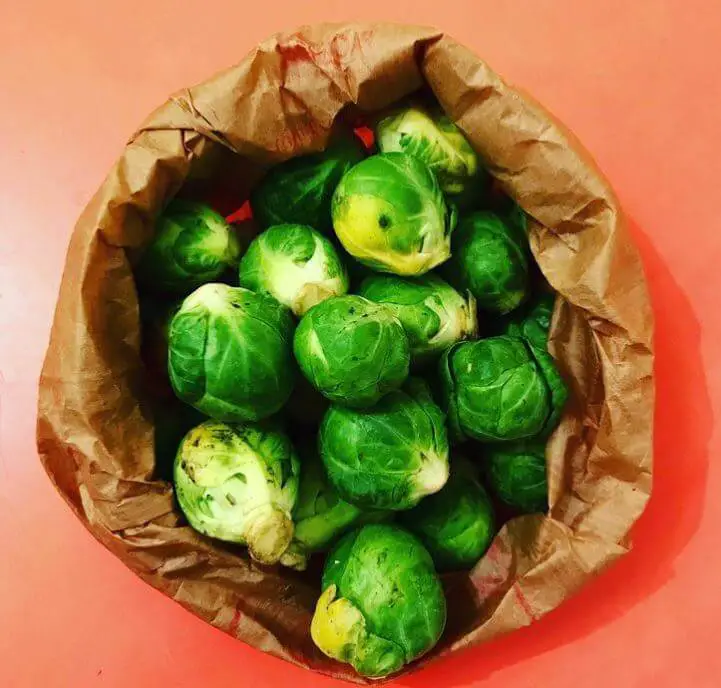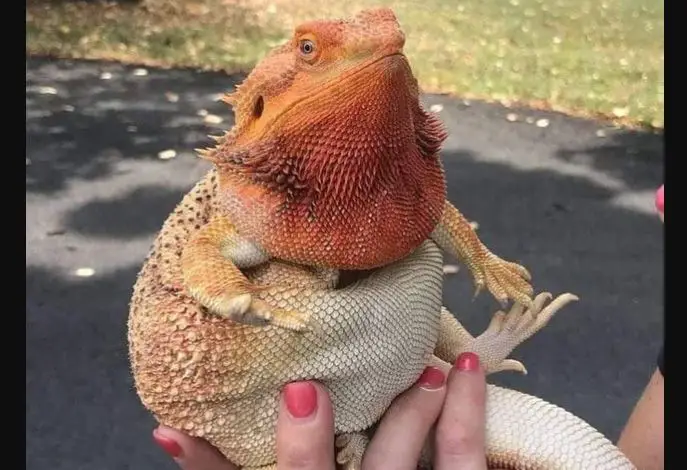We all know that bearded dragons are omnivores, they can eat a variety of food from vegetables to insects. But can bearded dragons eat Brussels sprouts?
It is all right to feed your bearded dragon with Brussels sprouts, but just like an occasional treat.
You should not take it as the main part of his daily meal. It would be much more harmful than healthy if you feed them too much.
In this article, we will discuss further how to prepare Brussels sprouts for your bearded dragons, as well as other kinds of green.
Related Posts:
- Can Two Beardies Live Together?
- Why Is My Beardie Hissing at Me?
- What Is a Good Humidity Level for Beardies?
- Why Is My Beardie Breathing Heavy?
- Can Beardies Get High?
- Why Does My Beardie Stare at Me?
- 20+ Tips to Setup Beardie Tank
- 30+ Beardie Body Language
How to Feed a Bearded Dragon?
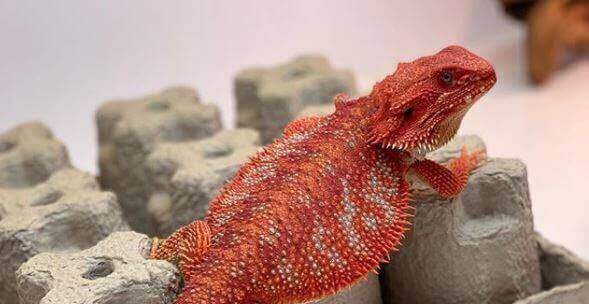
Before we talk about whether bearded dragons can eat Brussels sprouts, let us discuss a bearded dragon’s diet.
A bearded dragon has a basic diet similar to other types of lizards, which includes much of vegetables and insects.
Greens must be the major part, and from 10% to 20%, it should be fruits, carrots, or celery.
Crickets tend to be the main protein and calcium source choice of a lot of pet owners.
Live insects are always the best, but if you can not find living ones, dried food is also okay.
But be careful when choosing bugs since they can carry dangerous parasites.
Here are suggested dried products:
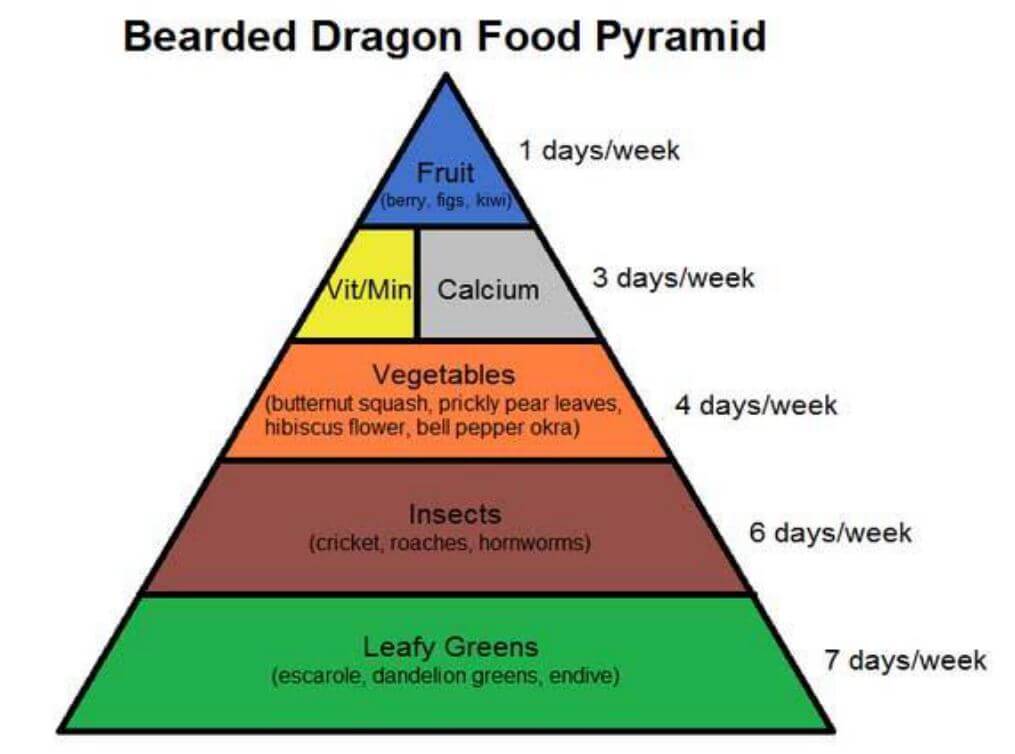
Here is a table showing the recommended food for bearded dragons:
| Fruit | Vegetables | Insects |
| – Apple
– Banana – Blueberry – Raspberry – Strawberry – Grape – Peach |
– Cabbage
– Carrot – Celery – Collard greens – Dandelion green – Kale – Pepper – Pumpkin – Squash – Sweet potato – Tomato – Zucchini |
– Cricket
– Dubia roaches – Earthworms – Mealworms |
We suggest you stick as near as possible to fresh food.
But if you are too busy, you can use formulated commercial food.
Nowadays, manufacturers produce so many different types of meals that contain enough nutrients for your pet’s needs.
You will not need to worry about preparing food for them anymore since a full diet made up of vegetables and insects is already packed in one product.
Looking for high-rated formulated bearded dragon food? Here are a few:
Can Bearded Dragons Eat Brussels Sprouts?
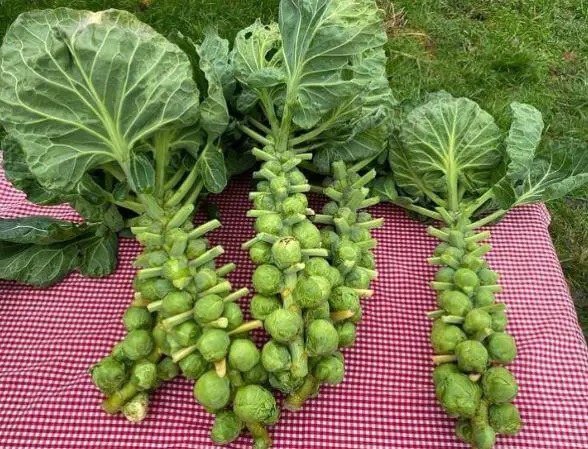
Let’s get back to our topic question: Can bearded dragons eat Brussels sprouts?
Although we do not recommend you to take sprouts as main dishes, there are some reasons why Brussels sprouts are the perfect occasional treat for bearded dragons:
1. Brussels Sprouts Are Nutritious for Bearded Dragons
Brussels sprouts contain vitamin K, C, and A, which helps to promote the health of bearded dragons. More than that, it also offers a rich source of antioxidants and fiber.
2. Brussels Sprouts Have Anti-inflammatory Properties
Brussels sprouts are very helpful for bearded dragons, especially when the lizard is facing swelling internally or externally.
3. Brussels Sprouts Extract Iodine From the Bearded Dragon’s Body
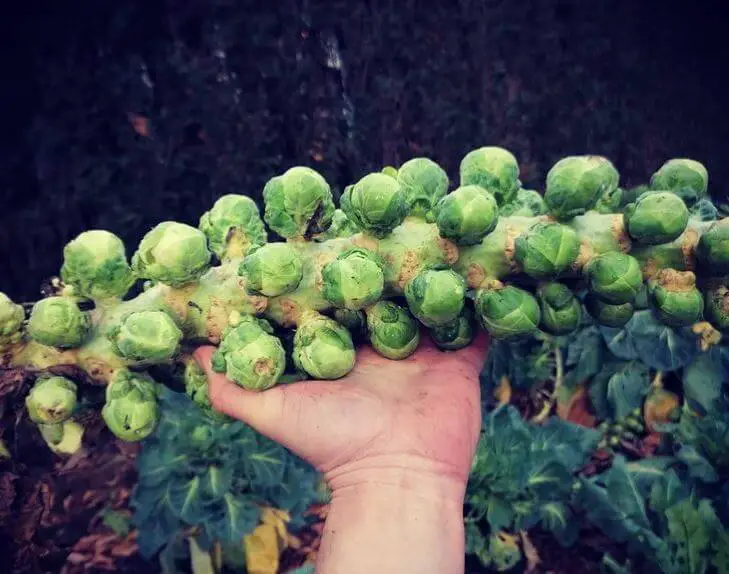
Despite having some health benefits, Brussels sprouts also carry a few negative aspects, one of which is the way they extract iodine.
Eating too much Brussels sprouts can lead to the removal of iodine from the bearded dragon’s diet.
Not having enough iodine can cause thyroid issues, which increases the chance of getting obesity and other health problems.
4. Brussels Sprouts Are Acidic
Brussels sprouts are reported to be too acidic. Consequently, eating too much of this green makes your bearded dragon to struggle with internal health problems.
However, it is all about quantity. A proper quantity will not cause serious illness but a tasty treat instead.
So, can bearded dragons eat Brussels sprouts? Bearded dragons can eat Brussels sprouts, but only in small amounts.
How to Prepare Brussels Sprout for Bearded Dragons?
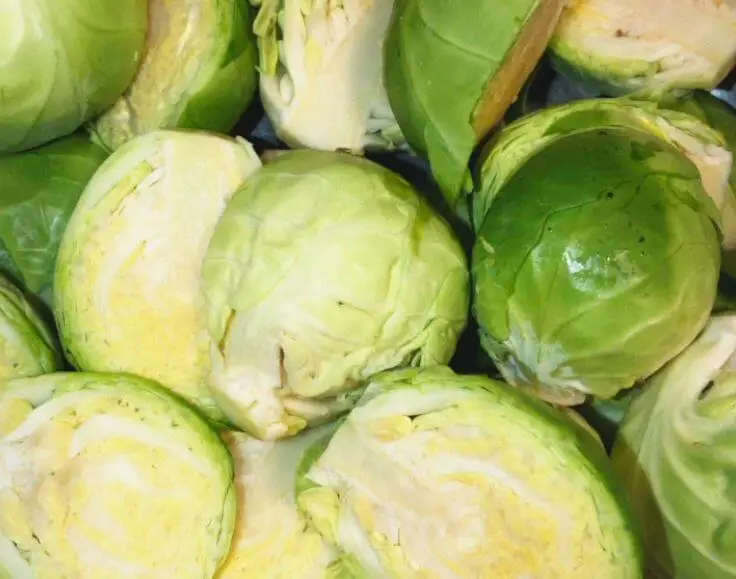
Now that you know that bearded dragons can eat Brussels sprouts, how can you prepare them for your bearded dragon?
First, wash the Brussels sprouts carefully. Make sure that you wash every single sprout.
Then cut Brussels sprouts into small pieces for your pet so they can easily eat them.
Some owners like to leave their lizard with entire sprouts, but we think small pieces encourage the dragon to eat and do not cause boredom.
You can feed a small amount of Brussels sprouts after you have washed and chopped them off.
This helps to see if the bearded dragon enjoys it or not.
Most of the bearded dragons like eating Brussels sprouts. However, there are always some picky ones. It depends on their preferences.
After that, you can add about one-half of the Brussels sprout to your bearded dragon’s meal once a week if he likes it. Both cooked or raw Brussels sprouts are acceptable.
How to make a good veggie dish that your reptile craves? Watch this video!
How Can Bearded Dragons Enjoy Brussels Sprouts?
Can bearded dragons eat Brussels sprouts? Yes! But how can you make them enjoy eating veggies more?
The following tips will make it easier and better for your feeding task.
1. It Is Not Recommended to Feed on Sand or Substrate
Bearded dragons may accidentally eat small bits of sand, gravel, or other loose substrates while eating plants and insects.
This unexpected intake can impose more stress on the digestive system, leading to severe health issues often.
Baby bearded dragons face this problem more frequently because adults are experienced eaters and typically can deal with minor intakes.
2. Check the Food Size
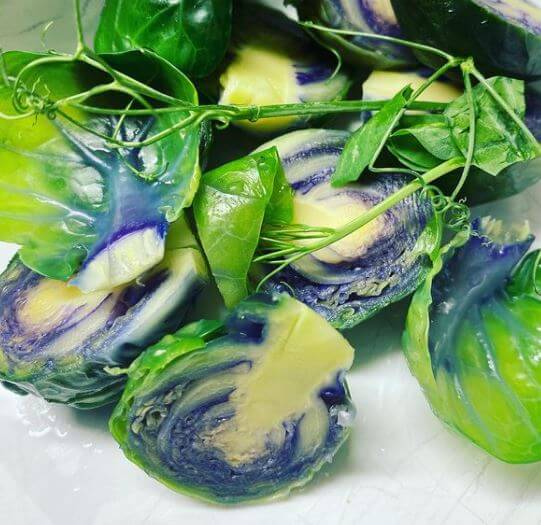
Do not feed anything larger than the distance between the dragon’s eyes. Any food wider than this length can cause impaction and force his spine to work harder, which may cause problems in health and mobility.
3. Don’t Overfeed
Obviously, overfeeding will cause obesity and other problems that should be avoided.
Owners who offer too many high-fat insects intentionally induce overfeeding.
It is advised that you use fatty waxworms for occasional treats only.
Less fat insects (for example, crickets) should be used usually.
4. Give Them Vitamins and Minerals
Bearded dragons lacking vitamin D3 cannot consume calcium. Most supplements would contain both.
For growing and healthy development, calcium and vitamin D3 are very essential for bearded dragons.
They help avoid metabolic bone disease and help maintain a stronger bone system.
Besides, iron is also one of the most important minerals for baby dragons since it helps them to grow.
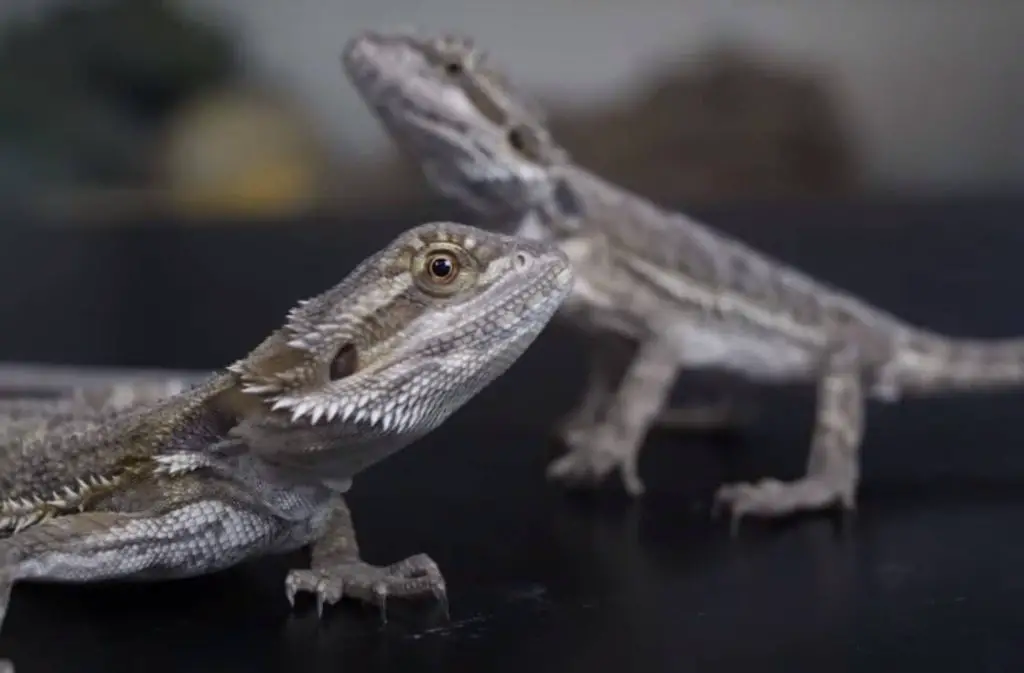
Bearded dragons usually get enough iron from their diets, but because younger ones are not always eating vegetables, a supplement is required.
Crickets are a good source of iron you can take into consideration.
Although eating whole food is advisable, providing supplements is still helpful if you do not know how to provide enough minerals and vitamins.
Frequently Asked Questions About Bearded Dragons Eating Brussels Sprouts
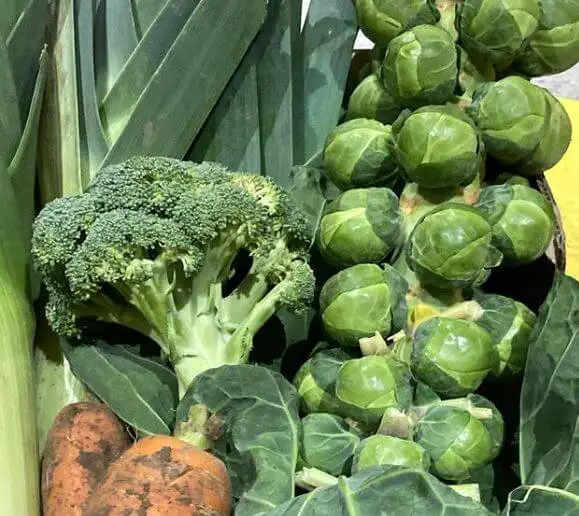
1. Can Bearded Dragon Eat Mung Bean Sprouts?
Although bearded dragons eat Brussels sprouts, they should not eat mung bean sprouts.
He can eat mung bean sprouts but it does not mean it is good for him.
The ratio of phosphorus in mung bean sprouts is not very appropriate.
In addition, it is quite acidic, which is not good for bearded dragons.
Related Posts:
- Can Beardies Eat Rosemary?
- Can Beardies Eat Peas?
- Do Beardies Eat Radish Greens?
- Can Beardies Eat Chard?
- Can Beardies Eat Dill?
2. Can Bearded Dragons Eat Meat?
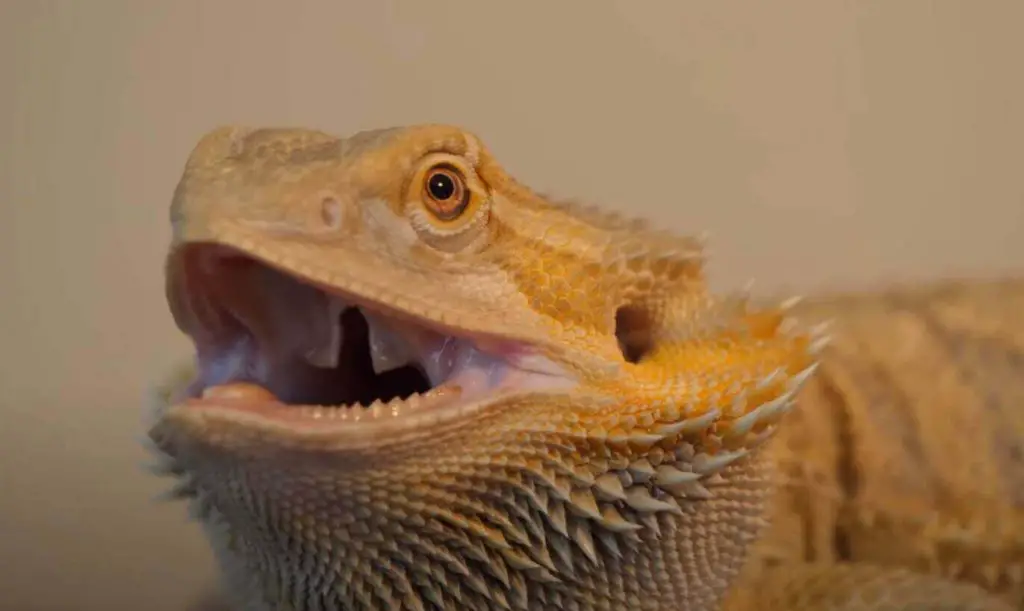
Yes, bearded dragons can eat meat. Certain beardies eat both cooked or raw meat, including minced beef, lean turkey, or chicken breast.
However, meat is rich in fat, so only feed your dragon in small quantities.
We suggest you feed meat only if you can not get live feeders for some reason, unseasoned, and just as an emergency protein supply.
3. What Will Happen If I Feed My Bearded Dragon Rice?
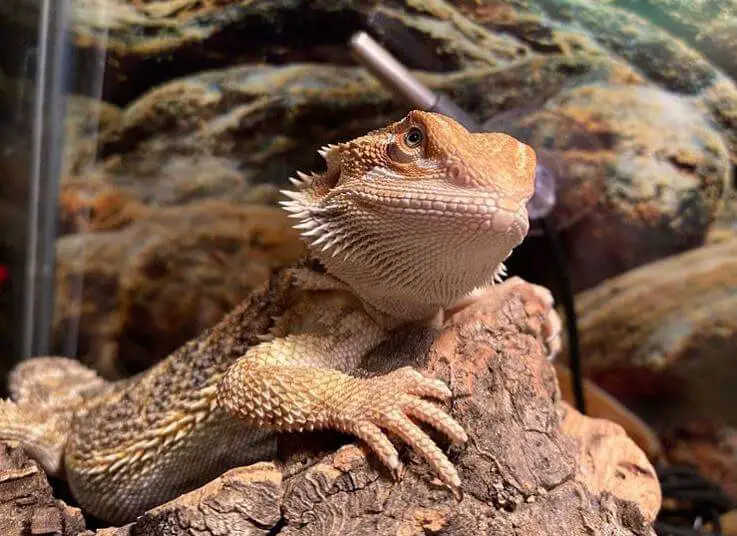
No, do not feed your bearded dragon rice. They can not ingest any of the grains that’s why it is not adapted to lizards’ diet.
They can not process it raw or cooked as humans do. The ingestion of rice can make your bearded dragon sick.
Similarly, almost all human carbohydrate-rich food is not advisable.
4. Do Bearded Dragons Like Apple?
Apple is their favorite fruit. You can feed them apples every week since this is one of the most healthy fruits for bearded dragons.
Remember, the nutrition requirement of a bearded dragon is 20% of insects, 80% of plants, and 10 to 20% of fruits.
Choosing the right type of fruit is also important as choosing the right protein or greens.
5. What Time Should I Feed the Bearded Dragon in a Day?
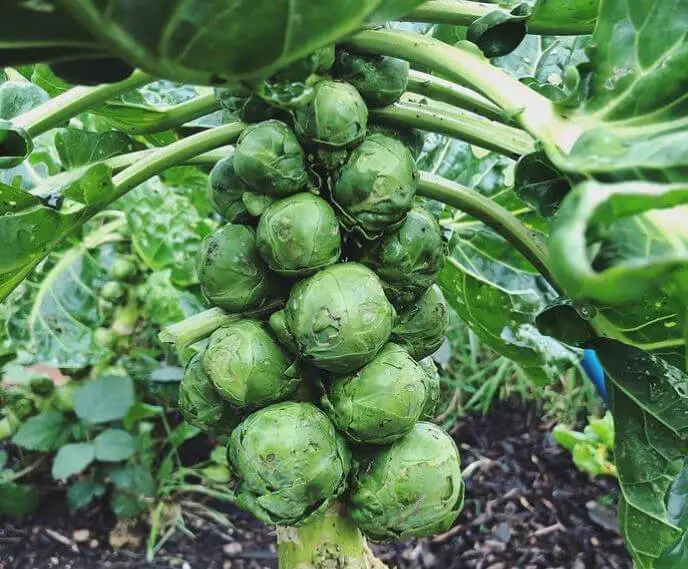
The first feeding of the day must always be 2 hours after turning the first lights, whatever their age.
Similarly, the last feeding must be delivered at least two hours prior to nighttime, before turning off the lights.
Conclusion
Can bearded dragons eat Brussels sprouts? Yes, bearded dragons can eat Brussels sprouts!
But since it is not good to take Brussels sprouts as the main diet, you should give your bearded dragons small amounts of sprouts.
Preparing different food, seasonal fruits, and intestinal insects will help you to ensure that your bearded dragon gets the nutrients they need.
Bearded dragons are notorious for the need for a combination of insects and vegetables to remain healthy. Thus, it could sound confusing and difficult for new owners.
But we hope the suggestions and explanations in this article can help you in getting the right diet plan.
Key points on whether bearded dragons can eat brussel sprouts:
Bearded dragons are omnivorous reptiles with specific dietary requirements, and while they can consume a variety of fruits and vegetables, not all options are suitable for their diet. Brussels sprouts, while not necessarily harmful, should be fed in moderation due to certain considerations:
1. Nutritional Value:
- Brussels sprouts are low in fat and calories, making them a nutritious addition to a bearded dragon’s diet.
- They contain essential vitamins and minerals, including vitamin C, vitamin K, and fiber.
2. High Oxalate Content:
- Brussels sprouts, like other cruciferous vegetables, are relatively high in oxalates.
- Oxalates can bind to calcium, potentially interfering with calcium absorption in bearded dragons, leading to health issues like metabolic bone disease (MBD).
3. Oxalate Content Variability:
- The oxalate content can vary among individual Brussels sprouts and the cooking process.
- Boiling Brussels sprouts may reduce their oxalate content compared to serving them raw.
4. Balanced Diet:
- Bearded dragons require a balanced diet that includes a variety of greens, vegetables, and insects.
- Brussels sprouts should be only a small part of their diet.
5. Feeding Frequency:
- If you choose to feed Brussels sprouts to your bearded dragon, do so infrequently and in small amounts.
- Diversity in their diet is essential to provide a range of nutrients.
6. Preparation:
- Thoroughly wash and chop Brussels sprouts into appropriately sized pieces for your bearded dragon.
- Remove any tough or fibrous parts that may be difficult for them to digest.
7. Monitor Digestive Response:
- Observe your bearded dragon’s digestive response to Brussels sprouts.
- If they experience diarrhea or other digestive issues, it may be best to avoid feeding this vegetable.
8. Supplement with Calcium:
- To mitigate potential calcium-binding effects of oxalates, make sure your bearded dragon’s diet is properly supplemented with calcium and vitamin D3.
9. Variation in Diet:
- Rotate their diet with a wide range of other leafy greens, vegetables, and insect feeders.
- Providing a varied diet helps ensure they receive a broad spectrum of nutrients.
10. Dietary Considerations for Young Dragons:
- Young bearded dragons require a different diet compared to adults.
- Brussels sprouts and other high-oxalate vegetables should be more restricted in the diets of young dragons.
In conclusion, Brussels sprouts can be included in a bearded dragon’s diet, but it should be done with caution and in moderation due to their oxalate content. A diet that is too high in oxalates can potentially interfere with calcium absorption and lead to health issues. As part of a balanced and diverse diet, Brussels sprouts can provide some nutritional benefits, but it’s important to monitor your bearded dragon’s digestive response and ensure they receive adequate calcium supplementation to maintain their overall health and well-being.
Further Reading:
- Carolina Custom Cages Terrarium Review
- 8 Best Basking Rocks for Beardie: What Is the Best Choice?
- 10 Best Thermometers for Beardie: How to Choose the Best One?
- 5 Best Beardie Lighting Setups for Beardie Lovers
- 9 Best Heat Lamps for Beardie: Natural Habitat Provided

